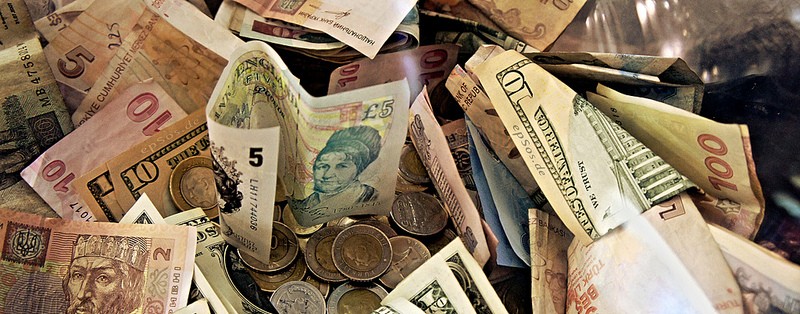Last fall the International Monetary Fund announced that China’s currency, the renminbi, would be included in the basket of currencies that determine the value of the IMF’s reserve asset, the Special Drawing Right (SDR). The IMF’s statement appeared to confirm the rise in the status of the currency that could at some point serve as an alternative to the U.S. dollar as a global reserve currency. But in retrospect the renminbi is a long way from achieving widespread use outside its regional trading partners, and recent policies will only limit the international use of the currency.
It has been widely speculated that the drive to include the renminbi in the IMF’s currency basket was a tool by reformers such as People’s Bank of China governor Zhou Xiaochuan to move their country towards a more liberal economic regime. The SDR currencies are supposed to be “freely usable” by foreign and domestic investors, so capital controls were eased in the run-up to the SDR announcement. But Chinese authorities are loath to give up their ability to control foreign transactions.
This has become particularly true as a result of China’s recent capital outflows. These have in part reflected outward foreign direct investment by Chinese firms seeking to expand. But the outflows are also due to Chinese firms and individuals moving money outside their country. These movements both reflect and contribute to a continuing depreciation of the renminbi, particularly against the dollar. Chinese authorities have burned through almost $1 trillion of their $4 trillion in foreign exchange reserves as they sought to slow the slide in the value of their currency.
To reduce pressure on the renminbi, the authorities are imposing controls on the overseas use of its currency. But these regulations to protect the value of the currency reduce the appeal of holding the renminbi. As Christopher Balding of the HSBC Business School in Shenzhen points out, monetary authorities can not control the exchange rate and the money supply while allowing unregulated capital flows.
Even if the authorities manage to weather the effects of capital outflows, the long-term prospects of the renminbi becoming a major reserve currency are limited. Eswar Prasad of Cornell University has written about the role of the renminbi in the international monetary system in Gaining Currency: The Rise of the Renminbi. After reviewing the extraordinary growth of the Chinese economy and the increased use of the renmimbi, Prasad evaluates China on the criteria he believes determine whether it will graduate to the status of a global currency. China had until recently been removing capital controls and allowing the exchange rate to become more flexible, benchmarks followed by foreign investors. Its public debt is relatively low, so there are no fears of sovereign debt becoming unmanageable or inflation getting out of hand.
On the other hand, the rise in total debt to GDP to 250% has drawn concerns about the stability of the financial sector. This is troubling, because as Prasad points out, this is the area of China’s greatest weakness. This vulnerability reflects not only on the increasing amount of private debt but also precarious business loans on the books of the banks, the growth of the shadow banking system and stock market volatility. Prasad writes: “China’s financial markets have become large, but they are highly volatile, poorly regulated, and lack a supporting institutional framework.” This is crucial, since ”… financial market development is likely, ultimately, to determine winners and losers in the global reserve currency sweepstakes.”
The growth in the use of renminbi has not eroded the primacy of the dollar in the international monetary system.. An investigation by Benjamin J. Cohen of UC-Santa Barbara and Tabitha M. Benney of the University of Utah of the degree of concentration in the system indicates that there is little evidence of increased competition among currencies. The dollar is widely used as a vehicle currency for private foreign exchange trading and cross-border investments, as well as for official holdings of reserves. Expectations for the euro have been scaled back as the Eurozone area struggles with its own long-term stability.
Carla Norrlof of the University of Toronto examines the sources of the dominance of the dollar. She investigates the factors that contribute to “monetary capability,” the resources base necessary for exercising currency influence. These include GDP, trade flows, the size and openness of capital markets, and defense expenditures. Norrlof’s empirical analysis leads her to confirm the status of the U.S. as the monetary hegemon: “The United States is peerless in terms of monetary capability, military power and currency influence.”
Cohen and Benney stress that their analysis holds for the current system, which could change. What could undermine the status of the dollar? Benjamin Cohen worries that President-elect Trump’s policies may increase the government’s debt and restrict trade, and possibly capital flows as well. These measures need not immediately demolish the role of the dollar. But Cohen writes, “…the dollar could succumb to a long, slow bleeding out, as America’s financial rivals try to make their own currencies more attractive and accessible.”
The renminbi, therefore, does not represent any short-term threat to the dollar’s place in the international monetary system. But the U.S. itself could undermine that status, and a potential opening may spur Chinese efforts to establish a firmer basis for the use of its currency, just as it has done in international trade in the wake of the demise of the Trans-Pacific pact. The transition could take decades, and during that period the global system could disintegrate into regional alliances that encourage unstable trade and financial flows. Those in the U.S. who voted for change may rue the consequences of President-elect Trump’s efforts to deliver on that electoral promise.

